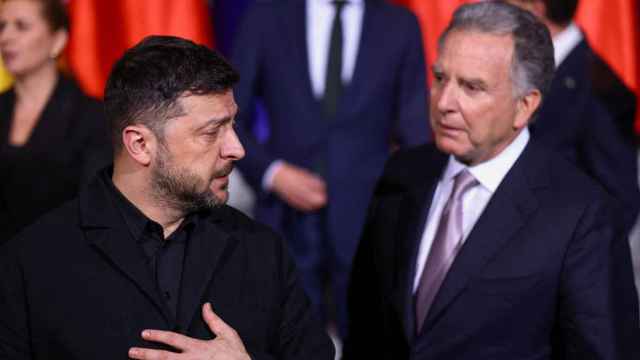The Federal Anti-Monopoly Service proposed legislative changes that would allow big retailers to expand a little more, a senior executive at the agency said Thursday.
Timofei Nizhegorodtsev, chief of the agency's department for social services and trade, also touted its courtroom victories over the last few weeks — involving Denmark's Novo Nordisk and France's Auchan — as setting new standards for the pharmaceutical and retail industries, respectively.
The amendments to the retail trade law, which are now at the Cabinet for consideration, would push back the ban on a chain of stores capturing more than 25 percent of the market in a region, provided that it grows "organically," Nizhegorodtsev said. Under the proposal, a company would have the chance to build more stores, even if that resulted in its share expanding to more than 25 percent, he said. But after a chain exceeds the 25 percent threshold, further growth would still be ruled out.
Mergers and acquisitions would remain banned as a way of surpassing the threshold, as would rentals, Nizhegorodtsev said.
"They suppress another spot of entrepreneurial activity," he said at a news conference. "Organic growth doesn't have that danger."
Nizhegorodtsev played up the lawsuit at the Moscow Arbitration Court, where the agency successfully defended its case against Auchan. The court ruled against the retailer last month after the company sought to overturn orders by the Federal Anti-Monopoly Service to observe the retail law in its dealings with several bakeries in and around Moscow. The bakeries had to sell their bread more expensively to meet Auchan's supplier terms, an investigation by the agency had found.
"A climactic moment has come," he said. "Courtroom practice is beginning to shape up. … Large retailers had lived as if the retail law would never affect them."
This ruling and one against a smaller Yekaterinburg-based chain in a recent unrelated case would define the future of the sector, he said. The government enacted the retail law in 2009 in a bid to give suppliers a prop in dealing with retail chains.
Nizhegorodtsev's department now spends 70 percent of its time on efforts to bring greater transparency to the pharmaceutical and medical equipment markets, he said. In a landmark development, the agency concluded a settlement with Novo Nordisk in July, after a legal battle, to allow more dealers to bid for the company's medicines.
"This brought about a tectonic change on the market," he said.
Pharmaceutical companies often preferred to sign exclusive agreements with select distributors, shutting out others — a practice that inflated prices, he said.
Novo Nordisk admitted to antitrust law violations and adopted a new policy in hiring distributors. It also paid a fine of 53.5 million rubles ($1.85 million), an amount less than what the Federal Anti-Monopoly Service had initially sought.
A Message from The Moscow Times:
Dear readers,
We are facing unprecedented challenges. Russia's Prosecutor General's Office has designated The Moscow Times as an "undesirable" organization, criminalizing our work and putting our staff at risk of prosecution. This follows our earlier unjust labeling as a "foreign agent."
These actions are direct attempts to silence independent journalism in Russia. The authorities claim our work "discredits the decisions of the Russian leadership." We see things differently: we strive to provide accurate, unbiased reporting on Russia.
We, the journalists of The Moscow Times, refuse to be silenced. But to continue our work, we need your help.
Your support, no matter how small, makes a world of difference. If you can, please support us monthly starting from just $2. It's quick to set up, and every contribution makes a significant impact.
By supporting The Moscow Times, you're defending open, independent journalism in the face of repression. Thank you for standing with us.
Remind me later.





